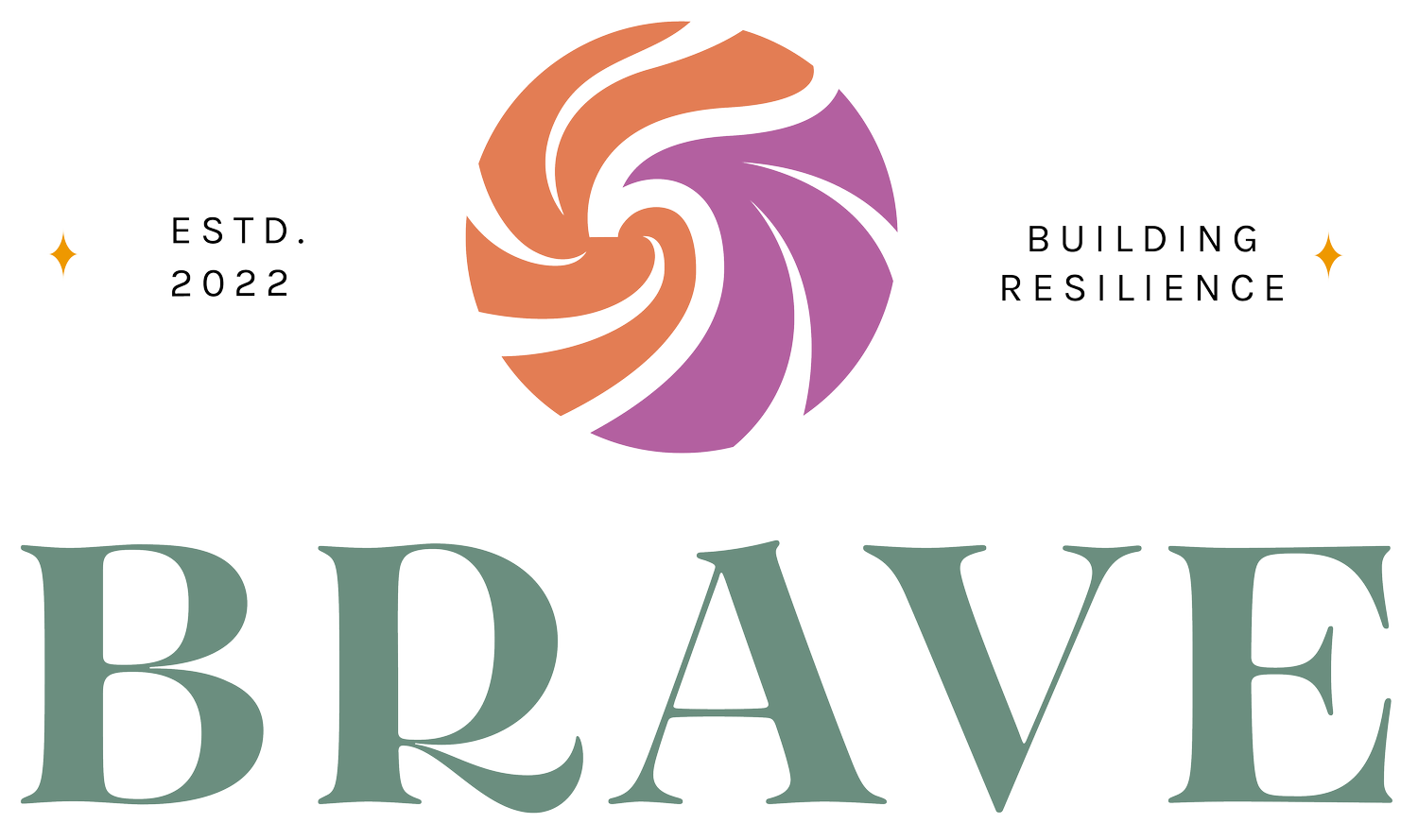Am I Too Sensitive to Be a Trauma Therapist? The Day I Was Told to Toughen Up
“You Shouldn’t Be a Trauma Therapist If You Feel Too Much” -Really?
Someone on the internet said I shouldn't be a trauma therapist because I talk openly about being affected by my clients' trauma. According to them, if I feel the impact of this work, I’m weak. Overly sensitive. Not cut out for the job.
You know this message, right? Maybe you haven’t heard it out loud, but I bet it’s lived in your head. Tell me in the comments if it has. Because the truth is, this story doesn’t come out of nowhere.
It’s woven into the culture of our field.
So I want to say this clearly: I’ve given my career to helping people survive the worst things that have ever happened to them. I won’t apologize for being human. I won’t shrink to make someone else feel more comfortable with the reality of what this work costs.
Denying my very real experience of vicarious trauma does a disservice to my brain, body, and spirit. But even more than that? It does a disservice to YOU. To all trauma therapists. To the whole profession.
And if you’ve ever felt the sting of shame for being impacted by your work, you’re not alone.
What Happens When Therapists Are Told to “Suck It Up”
The comment that told me I shouldn’t be a therapist hit every nerve—not because I believed it, but because I know how many therapists do. It echoes the deepest fear so many of us carry: “If I feel too much, I must not be cut out for this.”
Let me say this plain: Being affected by your clients’ trauma does NOT make you unfit to do this work. It makes you human. And that humanity? That’s your strength.
We hold people in the rawest, most shattered moments of their lives. We carry stories no one else has heard. Of course that impacts us.
You can’t walk through water without getting wet. You can’t do this work without being touched by it.
What you feel isn’t weakness. It’s vicarious trauma—a natural, human response to chronic exposure to other people’s pain. And pretending otherwise only makes it worse.
You’re Not Failing. You’re Feeling.
When I read that comment, I felt rage. But beneath the rage? Grief. Because I remember when I used to believe that voice. When I thought, You need thicker skin. Get it together.
I believed that for way too long. And it nearly cost me everything.
That’s why I built BRAVE. So therapists like you wouldn’t have to white-knuckle your way through this work, thinking maybe I'm just not strong enough.
You are. You’re not failing. You’re feeling. And there’s a difference.
What Happens When We Tell the Truth Out Loud
Here’s the part that floored me: it wasn’t the hate that stuck with me. It was the flood of support that came after.
Right after that comment, I saw a flood of others:
*"Yes. This work is heavy." "Yes. I feel this too." "Yes. Thank you for naming it."
From strangers. From therapists. From people who get it. And that contrast—from attack to affirmation—stopped me in my tracks.
It reminded me why I do this work. Not just trauma therapy, but community-building through BRAVE. Because when we feel seen, supported, and understood? We heal.
And when we support each other? We get stronger.
That’s what vicarious resilience looks like in real time.
Therapist Shame Is a Systemic Issue
If you’ve ever asked yourself, even quietly: Am I too soft for this? Am I the only one who feels wrecked after sessions?
You’re not.
That question comes from a system that praises detachment and punishes humanity. The outrage I felt at that comment? It wasn’t just personal. It was political. It was about every trauma therapist who’s ever been told to toughen up instead of being offered support.
And those voices that came in afterward, the ones that said, "Of COURSE trauma therapists are affected by trauma," they weren’t just replies.
They were a movement.
Proof that we are not outliers. We are the norm. We’re just too often silent about it. And that’s why BRAVE exists.
Because this profession needs more than burnout prevention lists and self-care slogans. It needs spaces where we can tell the truth. Where both outrage and tenderness are allowed in the room.
Your Empathy Is Not a Liability. It’s the Point.
So no, I won’t apologize for being affected by my work. I won’t accept the lie that my empathy is a flaw.
If anything, I’m proud.
I’m proud that I feel.
I’m proud that I care.
And I’m proud to be part of a profession that, when we support each other, can change lives, including our own.
If someone can’t handle the reality of what this work costs, they’re not the one doing it. You are.
And you don’t have to carry it alone.
Not here. Not anymore.
This work is heroic. And if you’re ready for real support, not performative bullshit, BRAVE is here for you.
Join the BRAVE Collective if you're craving a space where your empathy isn't pathologized, it's recognized as your power.
You deserve support that's as strong and real as the work you do.
Learn more about the membership or connect with me directly.
Let’s keep this conversation going in the comments, in your community, and inside BRAVE.






